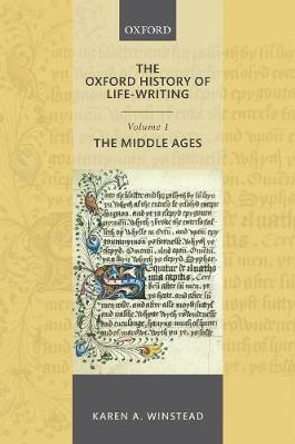Description
In Fifteenth-Century Lives, Karen A. Winstead identifies and explores a major shift in the writing of Middle English saints' lives. As she demonstrates, starting in the 1410s and '20s, hagiography became more character-oriented, more morally complex, more deeply embedded in history, and more politically and socially engaged. Further, it became more self-consciously literary and began to feature women more prominently-and not only traditional virgin martyrs but also matrons and contemporary holy women. Winstead shows that this literature placed a premium on scholarship and teaching. Hagiography celebrated educators and scholars to a greater extent than ever before and became a vehicle for educating readers about Christian dogma. Focusing both on authors well known, such as John Lydgate and Margery Kempe, and on others less known, such as Osbern Bokenham and John Capgrave, Winstead argues that the values promoted by fifteenth-century hagiography helped to shape the reformist impulses that eventually produced the Reformation. Moreover, these values continued to influence post-Reformation hagiography, both Protestant and Catholic, well into the seventeenth century.
In exploring these trends in fifteenth-century hagiography, identifying the factors that contributed to their emergence, and tracing their influence in later periods, Fifteenth-Century Lives marks an important contribution to revisionary scholarship on fifteenth-century literature. It will appeal to students and scholars of late medieval English literature and late medieval religion.
About the Author
Karen A. Winstead is professor of English at the Ohio State University. She is the author and translator of a number of books, including The Life of Saint Katherine of Alexandria by John Capgrave (University of Notre Dame Press, 2011).
Reviews
"Fifteenth-Century Lives is one of the most original studies of later medieval sanctity I have encountered. Karen Winstead analyzes ways in which fifteenth-century hagiographical texts, often considered staid, dull, and conservative, are instead highly innovative." -Nancy Bradley Warren, author of Chaucer and Religious Controversies in the Medieval and Early Modern Eras
"This is a significant contribution to our understanding of the development of literary treatments of saints' lives, and I found that the final chapters, which looked at the ways that later authors continued and changed the emphases of the chosen texts, provided some unexpected insights." -The Medieval Review
"Winstead provides fruitful insight into the connections between English pre- and post-Reformation thought. She successfully argues that fifteenth-century reformers were just as concerned as their sixteenth-century Protestant successors about the importance of education to create and maintain theologically orthodox Christians." -Journal of British Studies
"Winstead demonstrates true mastery of late medieval English hagiography.... [H]er literary analysis and historicism is impressive and convincing-one finishes the book with a greater understanding of late medieval English hagiography as a hidden historical resource." -Fides et Historia
Book Information
ISBN 9780268108533
Author Karen A. Winstead
Format Hardback
Page Count 220
Imprint University of Notre Dame Press
Publisher University of Notre Dame Press
Dimensions(mm) 229mm * 152mm * 13mm










